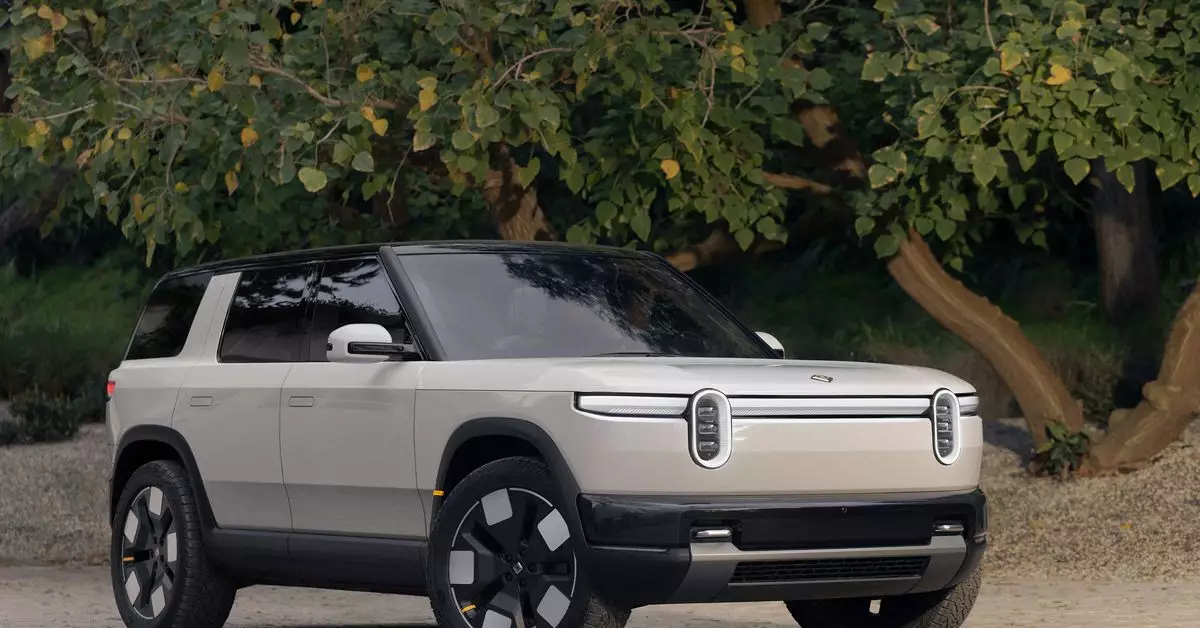In the highly competitive landscape of electric vehicles (EVs), Rivian Automotive is making headlines not just for its innovative designs but also for its strategic pivot towards domestic battery production. As the company previously unveiled its R2 model—an affordable electric SUV expected to retail at around $45,000—it confirmed that the batteries powering these vehicles will be produced domestically in the U.S. The announcement came during Rivian’s third-quarter earnings report, highlighting their collaboration with LG Energy Solution, a South Korean battery manufacturer. This critical move positions Rivian not only to comply with emerging regulations and tax incentives but also to fortify its supply chain against international fluctuations.
Rivian has introduced its new battery cell, dubbed “4695,” which measures 46 millimeters in diameter and 95 millimeters in height, surpassing the dimensions of Tesla’s well-known 4680 cells. The significance of this new design lies not only in its size but also in its simplified manufacturing process. The R1T and R1S, Rivian’s existing models, currently utilize cells sourced from Samsung SDI in South Korea, assembled in Rivian’s factory in Normal, Illinois. Transitioning to a domestically produced battery system can potentially minimize transportation costs and supply chain vulnerabilities while aligning Rivian with the federal incentives laid out in the Inflation Reduction Act (IRA).
One of the most compelling features of Rivian’s new battery packs is their promise of greater cost efficiency. The company’s projection of a “meaningful reduction” in the cost-per-kilowatt-hour at the pack level stands out, as lower production costs are critical for a competitive edge in the expanding electric vehicle market. With fewer cells needed in these larger packs, Rivian anticipates a significant enhancement in assembly efficiency, projected to improve by as much as 45 percent. This shift could not only streamline manufacturing processes but also enable Rivian to scale production more effectively, priming the company for significant growth as EV adoption accelerates.
However, Rivian’s ascension to market prominence is not without its challenges. The political landscape in the U.S. is shifting, especially with the potential return of former President Donald Trump. His administration has signaled intentions to reassess existing subsidies and introduce tariffs on imported goods, creating an uncertain environment for companies like Rivian that rely on investment incentives to remain viable. The context of Trump’s promise to abolish Joe Biden’s EV subsidies raises critical questions about the sustainability of struggling EV-only companies, further complicating Rivian’s ambitions in the marketplace.
As Rivian gears up for production of the R2 in the first half of 2026, the automotive manufacturer faces numerous external pressures including regulatory changes and market volatility. With such a pivotal shift in the sourcing and manufacturing of their battery systems, Rivian is attempting to create a resilient foundation that aligns with evolving consumer expectations and governmental policies. The strategic move towards domestic battery production is a crucial chapter in Rivian’s story, one that may prove instrumental in determining its success or failure in an increasingly rigorous marketplace.
Rivian’s endeavors to develop the R2 model, supported by local battery production, underscores a significant transition within the automotive industry towards sustainability and self-reliance. As they navigate the complexities of production, pricing, and political landscapes, Rivian’s innovative approach may hold the key to its survival and growth. The intersection of technology, environmental ethos, and regulatory requirements will undoubtedly shape not only Rivian’s trajectory but also the future of electric vehicles in America. How well the company adapts to these ongoing challenges will determine its place in a rapidly shifting automotive arena.


Leave a Reply